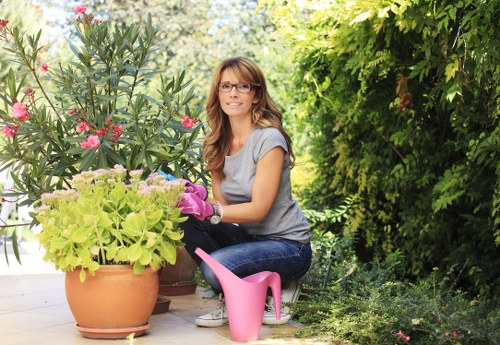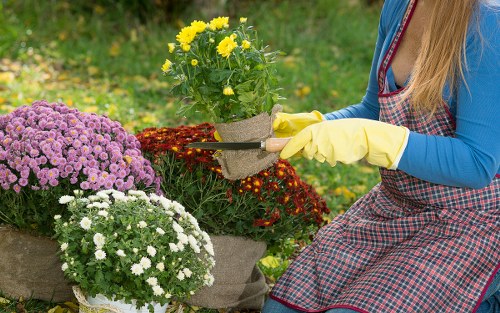Expert Garden Maintenance in Kilburn: Keep Your Garden Thriving Year-Round
Introduction to Garden Maintenance in Kilburn

Maintaining a beautiful garden in Kilburn requires a blend of expertise, dedication, and understanding of the local climate. Whether you're a seasoned gardener or a beginner, effective garden maintenance ensures your outdoor space remains vibrant and healthy throughout the year.
In Kilburn, the unique combination of urban surroundings and green spaces presents both opportunities and challenges for garden enthusiasts. Proper maintenance not only enhances the aesthetic appeal of your property but also contributes to the overall well-being of the environment.
This comprehensive guide covers essential aspects of garden maintenance in Kilburn, providing you with the knowledge and tools needed to achieve a flourishing garden.
Understanding the Kilburn Climate

Climate Overview
Kilburn experiences a temperate climate with mild winters and warm summers, making it suitable for a wide variety of plants. Understanding the local weather patterns is crucial for planning your garden maintenance activities.
Temperature and Rainfall
The average annual temperature in Kilburn ranges from 8°C in winter to 22°C in summer. Annual rainfall is moderate, providing sufficient moisture for most garden plants, but occasional dry spells may require supplemental watering.
Seasonal Changes
Each season in Kilburn brings its own set of challenges and opportunities for garden maintenance. Adapting your gardening practices to seasonal changes ensures that your plants thrive year-round.
Essential Garden Maintenance Tasks

1. Lawn Care
Maintaining a healthy lawn is fundamental to garden upkeep. Regular mowing, fertilizing, and aerating help keep the grass lush and resilient against pests and diseases.
Key Lawn Care Tips:- Mow regularly to encourage even growth.
- Fertilize appropriately based on grass type and soil conditions.
- Aerate the soil annually to promote root health.
2. Pruning and Trimming
Pruning is essential for maintaining the shape and health of shrubs, trees, and flowering plants. Proper trimming stimulates growth and prevents overgrowth that can lead to structural issues.
Plant Health and Pest Management

Preventing Pests and Diseases
Effective pest management is critical for preserving plant health. Regular inspections and the use of natural or chemical treatments can mitigate infestations and disease outbreaks.
Integrated Pest Management (IPM)
IPM combines biological, cultural, and chemical methods to control pests sustainably. This approach minimizes environmental impact while protecting your garden.
Common Pests in Kilburn Gardens
Identifying and addressing common pests such as aphids, slugs, and caterpillars early can prevent severe damage to your plants.
Seasonal Garden Maintenance

Spring Maintenance
Spring is a time of renewal, perfect for preparing your garden for the growing season. Tasks include planting new flowers, fertilizing, and pruning dead branches.
Summer Care
During summer, focus on watering, weeding, and providing shade to protect sensitive plants from the heat. Regular monitoring for pests is also essential.
Autumn Cleanup
Autumn involves removing fallen leaves, preparing beds for winter, and planting hardy varieties that can withstand cooler temperatures.
Choosing the Right Plants for Kilburn Gardens
Perennials vs. Annuals
Selecting the appropriate plants is vital for minimizing maintenance and ensuring a lasting garden. Perennials return year after year, while annuals need to be replanted each season.
Best Perennials for Kilburn
- Lavender
- Hostas
- Daylilies
Low-Maintenance Plants
If you prefer a garden that requires minimal upkeep, consider drought-tolerant and pest-resistant varieties.
Soil Health and Fertilization
Testing Your Soil
Understanding your soil composition is fundamental to successful gardening. Conducting soil tests helps determine nutrient deficiencies and pH levels.
Amending the Soil
Based on soil test results, you may need to add compost, lime, or other amendments to improve fertility and structure.
Fertilization Strategies
Using the right fertilizers at the right times supports plant growth and soil health.
Watering Techniques
Efficient Watering Practices
Proper watering is essential for plant health. Overwatering can lead to root rot, while underwatering stresses plants.
- Water early in the morning to reduce evaporation.
- Use drip irrigation systems for targeted watering.
- Mulch around plants to retain moisture.
Rainwater Harvesting
Collecting rainwater is an eco-friendly way to water your garden, reducing dependence on municipal water supplies.
Garden Tools and Equipment
Essential Tools for Maintenance
Having the right tools makes garden maintenance more efficient and enjoyable. Invest in quality equipment to ensure longevity and effectiveness.
Basic Garden Tools
- Hand pruners
- Garden gloves
- Spade and trowel
Advanced Equipment
For larger gardens, consider using lawn mowers, tillers, and irrigation systems to streamline maintenance tasks.
Landscape Design Tips
Creating a Balanced Garden
Thoughtful landscape design enhances both functionality and beauty. Balance different plant types, colors, and textures to create a harmonious space.
Incorporating Hardscapes
Elements like pathways, patios, and garden sculptures add structure and interest to your garden.
Sustainable Design Practices
Implementing sustainable practices, such as native plant selection and water-efficient layouts, contributes to environmental health.
Professional Garden Maintenance Services in Kilburn
Benefits of Hiring Professionals
While DIY garden maintenance is rewarding, professional services offer expertise and save time, ensuring your garden remains in top condition.
- Expert knowledge of local plants and conditions
- Access to specialized equipment
- Regular maintenance schedules
Choosing the Right Service Provider
When selecting a garden maintenance service in Kilburn, consider factors such as experience, reputation, and the range of services offered.
Custom Maintenance Plans
Many professionals offer tailored maintenance plans to meet the specific needs of your garden, ensuring personalized care.
Eco-Friendly Gardening Practices
Sustainable Maintenance Techniques
Adopting eco-friendly practices not only benefits your garden but also the broader environment. Sustainable maintenance reduces waste and conserves resources.
Composting
Recycling organic waste through composting enriches the soil naturally, reducing the need for chemical fertilizers.
Natural Pest Control
Using beneficial insects and organic remedies helps manage pests without harming the ecosystem.
Common Garden Maintenance Mistakes to Avoid
Overwatering and Underwatering
Finding the right balance in watering is crucial. Both overwatering and underwatering can stress plants and lead to poor growth.
Poor Pruning Practices
Incorrect pruning can damage plants and inhibit their natural growth patterns. Always use proper techniques.
Neglecting Soil Health
Ignoring soil quality can result in nutrient deficiencies and weakened plants. Regular soil testing and amendments are essential.
Enhancing Garden Aesthetics
Plant Selection and Arrangement
Choosing the right plants and arranging them thoughtfully enhances the visual appeal of your garden. Consider color schemes, blooming seasons, and plant heights.
Incorporating Seasonal Blooms
Planting a variety of flowers that bloom in different seasons ensures your garden remains colorful and lively year-round.
Decorative Accessories
Adding decorative elements such as birdbaths, garden lights, and sculptures can personalize your garden space.
Maintaining Garden Structures
Fences, Gazebos, and Pathways
Regular maintenance of garden structures ensures their longevity and safety. Inspect for damage, clean surfaces, and perform necessary repairs.
Wooden Structures
Treat wooden fences and gazebos with sealants to protect against moisture and pests.
Stone and Brick Pathways
Keep pathways clear of debris and repair any cracks or uneven surfaces to prevent tripping hazards.
Winter Garden Preparation
Protecting Plants During Cold Months
Preparing your garden for winter involves protecting plants from frost and harsh weather. Techniques include mulching, covering, and selecting frost-resistant varieties.
- Mulch helps insulate the soil.
- Covers and blankets shield delicate plants.
- Pruning ensures plants are robust for the next season.
Storage of Garden Tools
Properly storing tools during winter prevents rust and extends their lifespan. Clean and dry all equipment before storage.
Planning for the Next Season
Use the winter months to plan your garden layout, select new plants, and order seeds for spring planting.
Conclusion: Invest in Quality Garden Maintenance
Achieve a Flourishing Garden in Kilburn
Effective garden maintenance in Kilburn requires a combination of knowledge, regular care, and sometimes professional assistance. By following the best practices outlined in this guide, you can enjoy a beautiful and healthy garden throughout the year.
Whether you choose to maintain your garden yourself or hire a professional service, investing time and resources into garden care pays off in the form of a thriving outdoor space.
Contact us today to schedule your garden maintenance service and transform your Kilburn garden into a lush, vibrant oasis.